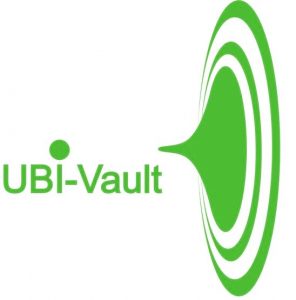A “clever” organization without owners is called an AI DAO (Artificial Intelligence Decentralized Autonomous Organization).
Profits from an AI DAO are meant for a UBI Universal Basic Income. The UBI-Vault system distributes this money to citizens.
Powered by Ethereum smart contracts

You can be a UBI-contributor or a UBI-receiver!


In the Daily Show watch Andrew Yang about a UBI.
The UBI-Vault contains digital money (crypto currency). The UBI-Vault system distributes this money automatically from the UBI-Vault to citizens´ wallets.
Anyone can register at the UBI-Vault with her mobile phone. A smart contract sends, when available, digital money from the UBI-Vault to her wallet. She can spend her digital money directly or exchange it into a currency of choice.
Self-owned organizations,
AI DAOs, spend their profits to a Universal Basic Income. They can register at the UBI-Vault for the distribution of their money. Also other organizations, governments and individuals can use the UBI-Vault for the distribution of their contributions.
AI DAOs, other organizations and individuals can use the UBI-Vault logo as proof of their contribution to a basic civilized income. Governments are allowed to use the UBI-Vault logo when they contribute 5% of their GDP to the UBI-Vault.
A “clever” organization without owners is called an AI DAO (Artificial Intelligence Decentralized Autonomous Organization).
Profits from an AI DAO are meant for a UBI Universal Basic Income. The UBI-Vault system distributes this money to citizens.
A blockchain, originally block chain, is a continuously growing list of records, called blocks, which are linked and secured using cryptography. Each block typically contains a hash pointer as a link to a previous block, a timestamp and transaction data. By design, blockchains are inherently resistant to modification of the data. It is “an open, distributed ledger that can record transactions between two parties efficiently and in a verifiable and permanent way”. For use as a distributed ledger, a blockchain is typically managed by a peer-to-peer network collectively adhering to a protocol for validating new blocks. Once recorded, the data in any given block cannot be altered retroactively without the alteration of all subsequent blocks, which requires collusion of the network majority.
Blocks hold batches of valid transactions that are hashed and encoded into a Merkle tree. Each block includes the hash of the prior block in the blockchain, linking the two. The linked blocks form a chain. This iterative process confirms the integrity of the previous block, all the way back to the original genesis block.
A hard fork term refers to a situation when a blockchain splits into two separate chains in consequence of the use of two distinct sets of rules trying to govern the system. For example, Ethereum has hard-forked to “make whole” the investors in The DAO, which had been hacked by exploiting a vulnerability in its code. In 2014 the Nxt community was asked to consider a hard fork that would have led to a rollback of the blockchain records to mitigate the effects of a theft of 50 million NXT from a major cryptocurrency exchange. The hard fork proposal was rejected, and some of the funds were recovered after negotiations and ransom payment.
